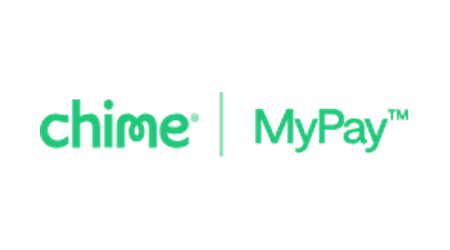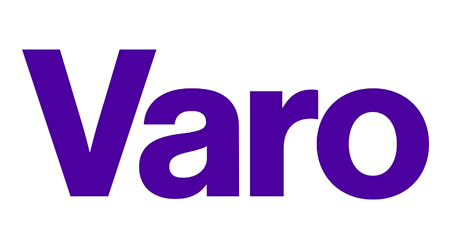Court fines can quickly break the bank if you’re out of work or simply don’t have the savings to cover the unexpected expense. Fortunately, most cities and counties offer assistance to those facing court fines they can’t pay. You might also qualify for short-term loan resources when outside help falls through.
Key takeaways
- You may cover court fines and other legal fees using fee waivers, financial assistance programs, community service, short-term loans or personal loans.
- Court fines could cost anywhere from a few hundred to a few thousand dollars depending on the offense, state where you live and the judges discretion.
- If you’re unable to get a fee waiver or defer your payment, a short-term loan may offer a way to pay your court costs on their due date.
What are my options when I can’t afford a court fine?
If you face a court fine, traffic fine or any other legal fee, your options vary depending on where you live. Start with resources that can help you cover unexpected costs.
Fee waivers
Each county works differently, but yours may offer fee waivers to mitigate the fines you’re charged. Generally, these waivers limit the costs associated with appearing in court.
You may be able to a waiver for, say, filing court forms or receiving official copies of documents. And you could potentially qualify for waivers specifically for those with low incomes or who receive help from the government.
Financial assistance programs
Often, assistance programs are available from the government or nonprofits for people who can’t afford to pay fines or basic living expenses. These programs may not help you pay court fines specifically, but they can make it easier to manage your overall budget.
What you ultimately qualify for depends largely on your income, debts and overall financial situation. Common programs that can reduce your bills include the Supplemental Nutrition Assistance Program (formerly food stamps), Home Energy Assistance Program and Medicaid. Check with your local and state governments to learn what you might qualify for.
Community service
Many counties have recently adopted community service programs designed to help minor offenders work off fines. In most cases, the hours you work reduce your fines by a set amount — typically the minimum wage in your area. These programs can be especially helpful if you don’t have a steady income and are worried you won’t be able to pay off your fines by the due date.
Short-term loans
Short-term loans are often marketed as a solid way to pay for an unexpected expense like a court fine. But they may not be available in you state.
If you owe less than $1,000 and need the cash as soon as possible, some people turn to payday loan options. If you owe more than $1,000 and have a bit more time, an installment loan may be a viable option.
To avoid an endless cycle of borrowing, build prompt repayments into your budget.
Bad credit personal loans
Short-term loans aren’t for everybody or even every situation. If you have poor credit and need a longer term to pay back your loan, a personal loan for borrowers with bad credit might be a better solution. While many of these loans are from short-term lenders, others act like traditional personal loans from banks or credit unions.
Compare short-term loans and alternatives
Compare other products
We currently don't have that product, but here are others to consider:
How we picked theseWhat is the Finder Score?
The Finder Score crunches 3+ types of short-term loans across 65+ lenders. It takes into account the product's interest rate, fees and features, as well as the type of loan eg investor, variable, fixed rate - this gives you a simple score out of 10.
To provide a Score, we compare like-for-like loans. So if you're comparing the best short-term loans for all credit types, you can see how each short-term loan stacks up against other short-term loans with the same borrower type, rate type and repayment type.
| Name | Term of Loan | Turnaround Time | Max. Loan Amount | |
|---|---|---|---|---|
| BadCreditLoans.com | 3 to 36 months | As soon as next business day | $10,000 | |
| OppLoans Installment Loans | 9 to 18 months | As soon as the same business day | $5,000 | Read review |
| NetCredit personal loans | 6 months to 5 years | Typically the next business day or sooner | $10,000 | |
| OneMain Financial personal loans | 24, 36, 48 or 60 months | As soon as one hour | $20,000 | Read review |
What will it cost to pay a court fine or fee?
The cost of your court fines vary greatly by where you live, the severity of your offense and the judge’s discretion. Expect to pay from a few hundred to a few thousand dollars for the total cost of appearing in court, dealing with legal fees and, if you’re found guilty, the activity that took you into the courthouse in the first place.
The court should issue you a list of charges that often break down the specific costs. If yours doesn’t, contact a state or county representative to make sure you aren’t overcharged.
What’s the process to pay a court fine?
Every court system enforces its own procedures when it comes to paying accumulated fees and fines, but it’s likely you can pay:
- Online. If the court offers online payments, you should be able to enter your personal and payment information to pay your fine. Though you may have to pay a processing fee.
- By phone. Some court systems allow you to pay by phone. To speed up the process, have your court-issued paperwork and payment on hand.
- By mail. If you can mail in a physical check, build in an extra few days for delivery and processing.
- In person. Most courthouses accept payments during office hours. Some courts accept cash, check or credit card, while others limit options.
Before submitting your information online or by phone, confirm that you’re on the correct website or speaking to the right department. Online, look for a URL that starts with the letters “https:” and includes an image of a padlock to the left of the search field.
Bottom line
Court fines and related fees can strain on your budget, but you can often get help to cover the costs. Fee waivers, community service programs and government assistance are just a few ways to lessen your out-of-pocket expense. If a loan is your only option, compare lenders and how they work in our comprehensive guide to short-term loans.
Frequently asked questions
Will I still need to pay court costs if my case is dismissed?
You might. A judge can dismiss the charges and court fees associated with your case, but not all courthouses do. Even if your case is dismissed, you may have to pay fees for appearing in court and filing paperwork.
What happens if I don’t pay a court fine?
Contact a lawyer or legal expert to learn what to expect and how to proceed if you can’t pay your court fine. Avoiding payment could result in late fees and even jail time, depending on the offense.
When is a short-term loan a good solution?
It depends on your situation. If you’re unable to get a fee waiver or defer your payment, then a short-term loan might be a way to pay your court costs by their due date. Make sure your budget can support the repayments to avoid a debt spiral.
When will I have to pay fees for a court-appointed attorney?
It depends on your state. Some state courts charge defendants attorney fees for legal counsel, even if you choose representation by a public defender. Learn about your state’s laws if you need an attorney while dealing with a court case.Image source: Shutterstock
Ask a question
2 Responses
More guides on Finder
-
Honest Loans Review: Compare Multiple Fast Funding Options (2026)
A review of Honest Loans, a lead generation service that can connect you with loan amounts from $200 to $50,000.
-
Get an $800 Loan as Fast as Same Day (2026)
Compare lenders that offer $800 loans, including payday and installment loans, personal loans and cash advance apps.
-
Get a $700 Loan as Fast as Today – Bad or No Credit Options (2026)
Lenders that offer $700 loans, how much they cost, requirements needed to qualify and what to watch for.
-
Get a $600 Loan in 24 Hours (2026)
How to get a $600 loan, including eligibility requirements and where to find them.
-
Get a $50 Loan Via These Instant Cash Advance Apps (2026)
From pay advance apps to payday loans, you have a few options to choose from.
-
Get a $300 Loan within 24 Hours (2026)
Compare eight lenders that offer loans under $300.
-
Get a $200 loan (2026)
Find out where to apply for a short-term loan if you have bad credit — and learn what red flags to stay away from.
-
Get a $500 Loan in 24 Hours (2026)
Here’s how to get a small $500 loan for cash until payday.
-
Get a $100 Loan as Fast as Today (2026)
Borrowing a $100 can be a quick and painless process. This article covers exactly what you need to know when you need a little cash between paydays.
-
Best Debit Card Loans: Payday, Cash Advance & Alternatives (2026)
Five lenders that offer debit card loans and fast funding.





I wanted to know where I could get help with paying traffic tickets cause I’m trying to get back in my car so that I could have a ride to work
Hi Lasharnde,
Thank you for reaching out to Finder.
The page we are on offers you a way to look at lenders available in your state to assist you in taking out a loan. All you need is to indicate the state you are living in to see your options. Hope this helps!
Cheers,
Reggie